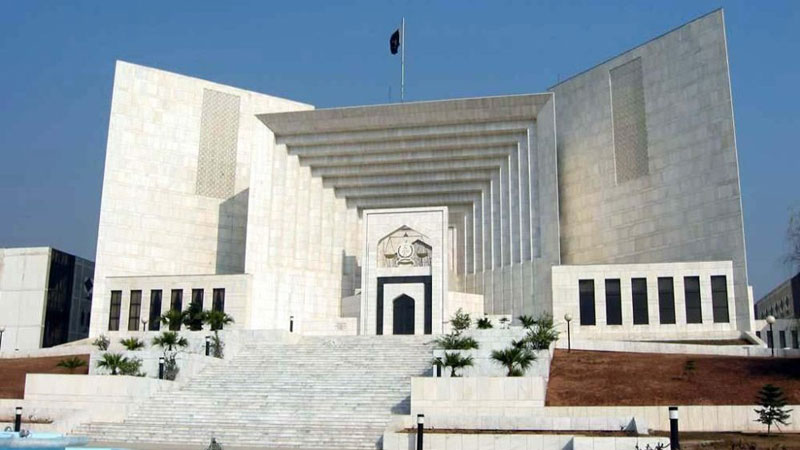
The directive from a three-member bench headed by Chief Justice Gulzar Ahmed came during the hearing at the SC’s Karachi Registry of a case related to the computerisation of land records.
In a report he presented to the court, Qazi Shahid Pervaiz, a senior member of the Sindh Board of Revenue, acknowledged that government lands in the province had been illegally occupied, with more than 240,000 bogus entries identified in the province from 1985 till date. Over 1,100 of these entries were pending a judicial review while more than 1,000 fake ones had already been removed, according to the report submitted by Pervaiz. It added that 70 million documents have been computerised across Sindh, to which the chief justice remarked that “cases of forged documents are being filed in high courts even today”.
“Has any government land been spared in the province,” Justice Ahmed inquired, while Justice Sajjad Ali Shah observed that the land records in Thatta contained numerous discrepancies. “Everyone has built villages of their own,” he noted.
On the other hand, the court also ordered the removal of encroachments from playgrounds and parks, ending the illegal occupation of lands belonging to the forest and irrigation department, and replanting of trees there.
Meanwhile, Karachi Commissioner Navid Ahmed Shaikh informed the Supreme Court on Wednesday that the residents of Farhan Society, which has been built on illegally occupied land of the Kidney Hill Park in Karachi, had been notified to vacate their houses within 30 days. Besides, he said, the residents of shacks built on illegally encroached land of the park had also been given seven days to vacate their dwellings.
The matter came up during the hearing of a case, pertaining to encroachments on the park’s land, at the SC’s Karachi registry. During the hearing, Shehri CBE – a citizen rights foundation- informed the court that 24 houses in Farhan Society were illegally constructed on four plots of Kidney Hill Park and that part of the park’s land was also illegally occupied by the Overseas Co-operative Housing Society.
The foundation told the court that former Karachi commissioner Iftikhar Shallwani had also prepared a report on the matter.
When Shaikh told the court that evacuation notices had been issued to the residents of the illegally constructed houses, the court questioned, “Orders for evacuation were issued earlier. Why are the [evacuation] notices issued now?”
Rebuking the commissioner, Chief Justice of Pakistan (CJP) Gulzar Ahmed remarked, “All of you have colluded on the matter.” He warned that contempt of court proceedings would be initiated against the relevant authorities if they failed to evacuate the illegally occupied land of the park within the stipulated time. The court sought an implementation report from the commissioner on the evacuation of the park’s land and issued notices to Farhan Society and Overseas Co-operative Housing Society.
Moreover, the apex court again directed the Karachi Port Trust (KPT) authorities to plant mangroves on land previously allotted for the construction of a housing society after the counsel for the KPT submitted a report.
In February this year, the court had declared the allotment of land on both sides of Mai Kolachi Road for the Karachi Port Trust Cooperative Housing Society illegal, besides ordering the plantation of mangroves on the said land within two months.
A three-judge SC bench, headed by the CJP, had observed that the land was provided to the KPT only for the purpose of management and operations of the port and any lease made in favour of its trustees or employees was illegal. As the court reiterated its directive on Wednesday, further ordering that the height of the land be brought to the sea level, the KPT counsel requested for more time to start the plantation of mangroves. “Be as fast at planting the trees as you sold the plots,” the court stated in return, seeking a report within two months after the completion of the plantation drive.













